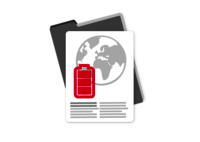General Product Safety Regulation (EU) 2023/988 obliges
GPSR Risk Analysis Required
Mandatory for almost every product: According to the GPSR, producers must draw up technical documentation for the products they place on the market. The technical documentation must be based on an internal risk analysis.
×
